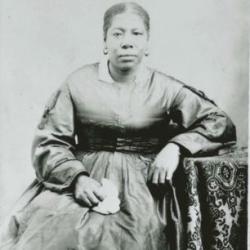How to Apologize Well
When a hurt takes place, whether intended or even realized by the offending party, the knowledge of that hurt finds its way back to the offender. The relationship is then in the offender’s hands. These four steps can lead to real healing:
1. Acknowledge the hurt specifically when you express regret.
Communicate that you know your action was wrong and that you value their feelings. They have a right to be hurt. Then express your regret in a sincere manner.
Avoid the “If” phrase found in hollow apologies: “If I hurt you, I’m sorry.” “If” and words like it put the blame on the other person for feeling hurt instead of on the person who committed the offense. Instead, use “That”—”I am sorry that I hurt you.” Then paraphrase the situation specifically, so that your apology relates directly to the offense.
For instance, this portion of Anyabwile’s letter reflects a specific regret: “…with a raised eye brow, a shrugged shoulder, a ‘hmmm’ before a redirecting sentence, I passed along what was in my heart, the sinful attitude rooted in the very misogyny and chauvinism you describe in your post.”
Broad, general, sweeping statements, on the other hand, dilute the effect of an apology: “I wish to apologize to every woman who has been wounded by anything I have said that was inappropriate or that lacked clarity” (Patterson). Such phrasing simultaneously tries to cover over too much while glossing over the actual offenses.
2. Tell them how you plan to right the situation.
Do everything you can to make it right. Repentance means more than words of regret. Words without action ring hollow. And some wounds have festered too long for a quick fix. When rectification is not possible, let the offended person(s) choose the outcome they’d like to see. Again, Anyabwile: “I do now commit to being a more outspoken champion for my sisters and for you personally. Not that you need me to be but because it is right…”
3. Communicate that you won’t do what you did again.
Without this step, what you’ve offered isn’t an apology—it’s an excuse. Repentance is seen in the fruit of a changed life.
4. Ask them for forgiveness.
“Will you please forgive me?” These words can be hard to say. They come from a humble heart, a willingness to put oneself at the mercy of another. We cannot assume that they will answer positively. The offended party must be allowed to take time before answering. And, even when they extend forgiveness, the original relationship will never be the same. Ideally, they will enjoy a stronger bond than before, having come through a crisis with godly sorrow and grace. But sometimes the offense is so grave that the relationship cannot be restored even with forgiveness. An abuser may not be welcomed back into a marriage. A betrayal may sound the death knell to a relationship. Safe boundaries can co-exist with forgiveness: “I have no hard feelings or desire that you pay for your sins against me, but our relationship cannot remain the same.” Some sins invoke permanent consequences.
If we parents can walk our children through the steps of a sincere apology when they are young, making a habit of it in the small things, they will be so much more equipped for the conflicts of adult life. “Pursue peace with everyone, and holiness—without it no one will see the Lord. Make sure that no one falls short of the grace of God and that no root of bitterness springs up, causing trouble and defiling many” (Heb. 12:14–15).
















